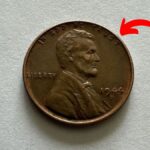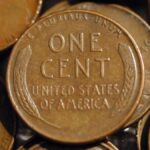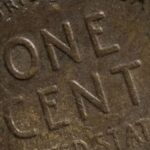In the vast world of coin collecting, few stories capture the imagination quite like that of the Bicentennial Quarter. While millions of Americans carry quarters in their pockets every day, few realize that some of these coins, particularly from the 1976 Bicentennial series, could be worth millions. The most exceptional example, valued at an astounding $9.5 million, stands as a testament to the fascinating intersection of history, preservation, and numismatic appreciation.
The Birth of a Commemorative Masterpiece
As America approached its 200th birthday in 1976, the United States Mint undertook an ambitious project to celebrate this historic milestone. The Bicentennial Quarter emerged as a centerpiece of this commemoration, featuring a design that departed dramatically from its predecessors. The reverse side showcased a colonial drummer boy, an enduring symbol of the American Revolution, accompanied by thirteen stars representing the original colonies and a victory torch symbolizing liberty’s eternal flame.
Design Elements and Symbolism
While maintaining George Washington’s familiar profile on the obverse, the coin’s reverse side tells a compelling story of American independence. The drummer boy, depicted in classic Revolutionary War attire, represents the spirit of defiance and determination that characterized the nation’s birth. The thirteen stars, arranged in a circular pattern, remind viewers of the original colonies that dared to challenge British rule. The victory torch, rising prominently, symbolizes the enduring light of liberty that continues to guide the nation.
The Path to Extraordinary Value
What transforms an ordinary Bicentennial Quarter into a $9.5 million treasure involves a remarkable combination of factors. The most valuable examples achieve the coveted MS-70 grade, indicating perfect condition with no discernible flaws even under magnification. This level of preservation, especially for coins initially meant for circulation, is exceptionally rare and contributes significantly to their value.
Understanding the Grading System
The numismatic grading scale, ranging from 1 to 70, provides a standardized method for evaluating coin condition. Coins graded MS-70 represent the pinnacle of preservation, showing no signs of wear, handling, or imperfection. The journey from mint state to MS-70 involves careful handling, proper storage, and often, a bit of luck. For Bicentennial Quarters, achieving this grade is particularly challenging given their original purpose as circulation currency.
Historical Significance and Collector Appeal
Beyond their monetary value, Bicentennial Quarters hold immense historical significance. They represent a unique moment in American history when the nation paused to reflect on two centuries of independence. The design elements carefully chosen for these coins reflect the values and aspirations that have guided America since its founding. For collectors, these quarters offer a tangible connection to this pivotal celebration of American heritage.
Factors Influencing Value
Several key elements contribute to a Bicentennial Quarter’s value. Condition remains paramount, with perfectly preserved specimens commanding the highest prices. Unique features or minting errors can significantly increase value, as these variations add an extra layer of rarity. The coin’s historical importance, particularly its connection to America’s bicentennial celebration, adds another dimension of value for collectors and historians alike.
The Broader Context of Rare Coins
The $9.5 million Bicentennial Quarter joins an elite group of highly valuable American coins. It shares company with legendary pieces like the 1794 Flowing Hair Silver Dollar and the 1933 Saint-Gaudens Double Eagle, both valued in the millions. These coins demonstrate how historical significance, exceptional condition, and extreme rarity can combine to create extraordinary value in numismatics.
Preservation and Authentication
For collectors fortunate enough to possess valuable coins, proper preservation becomes crucial. Professional grading services like PCGS and NGC play vital roles in authenticating and evaluating coins, providing credibility and peace of mind to buyers and sellers. Proper storage in temperature-controlled environments using appropriate protective cases helps maintain condition and value over time.
Looking Forward
As America approaches its 250th anniversary in 2026, interest in Bicentennial memorabilia, including these special quarters, is expected to increase. This upcoming milestone may drive further appreciation in the value of well-preserved examples, particularly those with unique characteristics or perfect grades.
Impact on Modern Collecting
The story of the $9.5 million Bicentennial Quarter has transformed how many view everyday coins. It encourages careful examination of circulation coins and promotes interest in numismatics among newer generations. This heightened awareness helps preserve important pieces of American monetary history while creating opportunities for discoveries in unexpected places.
Educational Value
These valuable quarters serve as educational tools, teaching lessons about American history, economics, and the art of coin design. They demonstrate how everyday objects can transcend their original purpose to become valuable historical artifacts. Their story encourages people to learn about coin grading, preservation techniques, and the broader field of numismatics.
Conclusion
The Bicentennial Quarter, particularly its most valuable examples, represents more than just a rare coin. It embodies American history, artistic achievement, and the enduring appeal of numismatic collecting. While finding a multi-million dollar quarter in everyday change remains unlikely, the possibility adds excitement to coin collecting and reminds us that historical treasures might be hiding in plain sight.
These special quarters continue to captivate collectors and historians alike, serving as miniature monuments to American independence and the art of coin design. Their story encourages us to look more carefully at the coins we handle daily, as each one potentially holds not just monetary value, but a piece of American history worth preserving for future generations.




